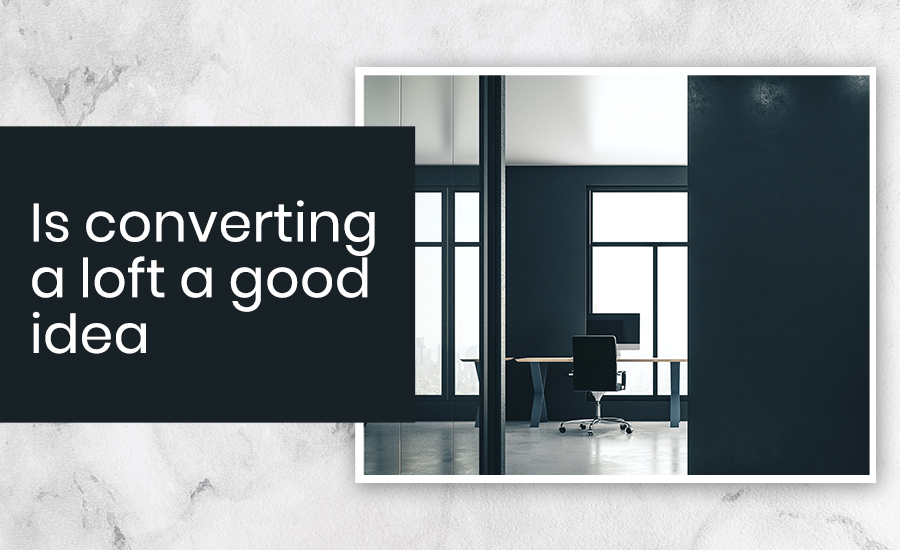Many homeowners are looking for ways to create more liveable space in their house for different purposes like a playroom, gym, extra bedroom or home office. Converting your loft into habitable space can give you the extra space needed to cater for your growing family’s needs. It is an affordable means of creating more home space, and it adds value to your home.
Benefits of a loft conversion
Research shows that the loft conversions London can increase the value of a house by about 20%. In places where the average cost of a house is high, a loft conversion can increase the cost of the house by a significant amount.
A loft conversion is a good idea as it converts a redundant space into an extra room. Unlike an extension, you don’t have to take up extra space on your property for a loft conversion. Converting a square meter of your loft costs less than building an extension because most structures needed for the conversion are already available.
Most loft conversions do not need planning permission, provided the loft conversion does not exceed the required size, which is 40 cubic meters for terraced houses or 50 cubic meters for detached houses. The loft must not exceed the existing roof height.
Asides from adding value to a home and creating extra space, a loft conversion increases energy conversion because the extra insulation will prevent heat loss and reduce energy bills.
Different types of loft conversion
Depending on your budget and the existing condition of your loft, you can have any of these loft conversions.
- Roof light conversion
This is the least expensive and simplest loft conversion. It involves fitting skylight windows, a staircase, and flooring to make the loft habitable.
- Dormer conversion
In a dormer conversion, an extension can protrude from the slope of the roof. This is the most common loft conversion and mostly suitable for houses with a sloping roof
- Hip-to-gable conversion
Hip-to-gable conversion requires an extension of the sloping side of the roof to create a vertical roof wall.
- Mansard conversion
Mansard conversion is the most expensive loft conversion. It involves extending the entire roof of the house and altering its angels to make it almost vertical.
Things to consider for a loft conversion
Cost and feasibility
The cost of a loft conversion usually depends on several factors, such as the pitch/shape of the existing roof and the age of the house. An affordable loft conversion will depend on the following factors.
- Having enough headroom in the loft (at least 2.2 meters)- If you need to extend your roof space, it will increase the overall cost of the loft conversion.
- Strong floor joists- if the floor joists are not strong enough to support the weight of the new room, you will need to get deeper joists or steelwork to support the weight of the room.
- Having sufficient space in the room below for a staircase- the space below must be sufficient to install a staircase that complies with Building regulations.
A builder or architect can survey your property and advise you on the most suitable design. You can also get loft conversions company London to handle all the processes involved, from getting planning permission to the design and construction.
Other considerations
Converting your loft to a habitable space would mean losing the storage space in your loft. You may have to clear out space in your garage to store the items you need.
The loft conversion may disrupt your regular activities, and the conversion may take longer than expected. Loft conversions usually take between 6 – 8 weeks. This does not include the decoration and laying the floor.
You’d have to deal with a lot of mess and dust for some weeks. Your carpets and furniture on the lower floor may accumulate most of the dust and debris. You may have to re-carpet the entire house after the loft conversion, so you may want to budget for redecoration after the construction.
Upsizing
If you don’t want to deal with building works, you could consider getting a bigger property. Upsizing may be the most suitable option if your current property no longer suits you or you don’t want to remain in the property for a long time. If you want to leave the property in a few years, financial investment in the house may not be the best option.
Moving to a new house may be worth it, even it is in the same area. However, you need to consider the additional cost of moving to a new house, such as stamp duty, solicitor’s fees and weigh them against a loft conversion to decide in the best course of action.
For loft conversions near me, contact Loft London today on 020 7100 5428 to get a professional who will survey your property and give you a detailed quote for a suitable loft conversion.


 Home
Home









